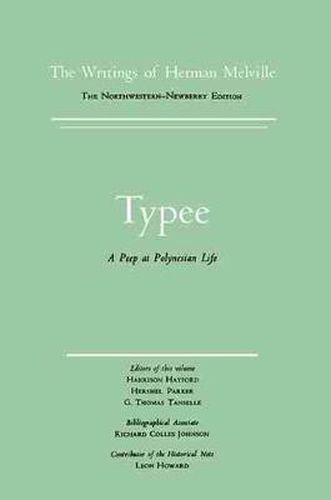Readings Newsletter
Become a Readings Member to make your shopping experience even easier.
Sign in or sign up for free!
You’re not far away from qualifying for FREE standard shipping within Australia
You’ve qualified for FREE standard shipping within Australia
The cart is loading…






Almost from the time of its publication in 1846, Melville’s first book, based on his own travels in the South Seas, has been recognized as a classic in the literature of travel and adventure. Although initially rejected as too fantastic to be true, Typee was immensely popular and regarded in Melville’s lifetime as his best work. It established his reputation as the literary discoverer of the South Seas and inspired the likes of Jack London and Robert Louis Stevenson. Two common sailors jump ship and are held in benign captivity by Polynesian natives. Through the narrator’s eyes we see a literate (if romanticized) portrait of the people and their culture presented in vivid, even scientific, detail. Melville’s racy style and irreverence toward Christian missionaries caused a scandal, and critics denounced the narrator’s suggestion that the native life might be superior to that of modern civilization. An adventure story above all, albeit one with a philosophical bent, Typee is a combination of elements that even early in Melville’s career hinted at the towering ambition he would fulfill with Moby-Dick.
$9.00 standard shipping within Australia
FREE standard shipping within Australia for orders over $100.00
Express & International shipping calculated at checkout
Almost from the time of its publication in 1846, Melville’s first book, based on his own travels in the South Seas, has been recognized as a classic in the literature of travel and adventure. Although initially rejected as too fantastic to be true, Typee was immensely popular and regarded in Melville’s lifetime as his best work. It established his reputation as the literary discoverer of the South Seas and inspired the likes of Jack London and Robert Louis Stevenson. Two common sailors jump ship and are held in benign captivity by Polynesian natives. Through the narrator’s eyes we see a literate (if romanticized) portrait of the people and their culture presented in vivid, even scientific, detail. Melville’s racy style and irreverence toward Christian missionaries caused a scandal, and critics denounced the narrator’s suggestion that the native life might be superior to that of modern civilization. An adventure story above all, albeit one with a philosophical bent, Typee is a combination of elements that even early in Melville’s career hinted at the towering ambition he would fulfill with Moby-Dick.